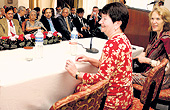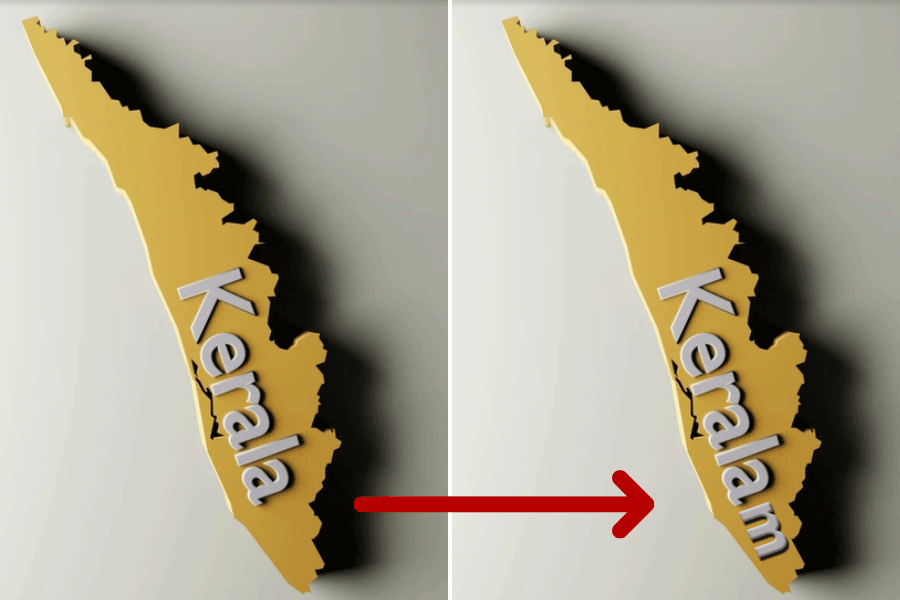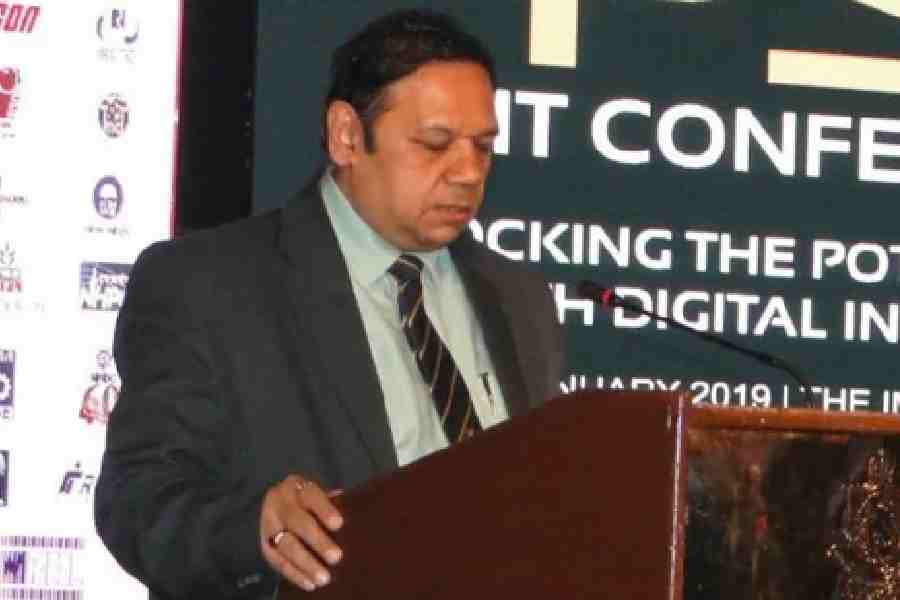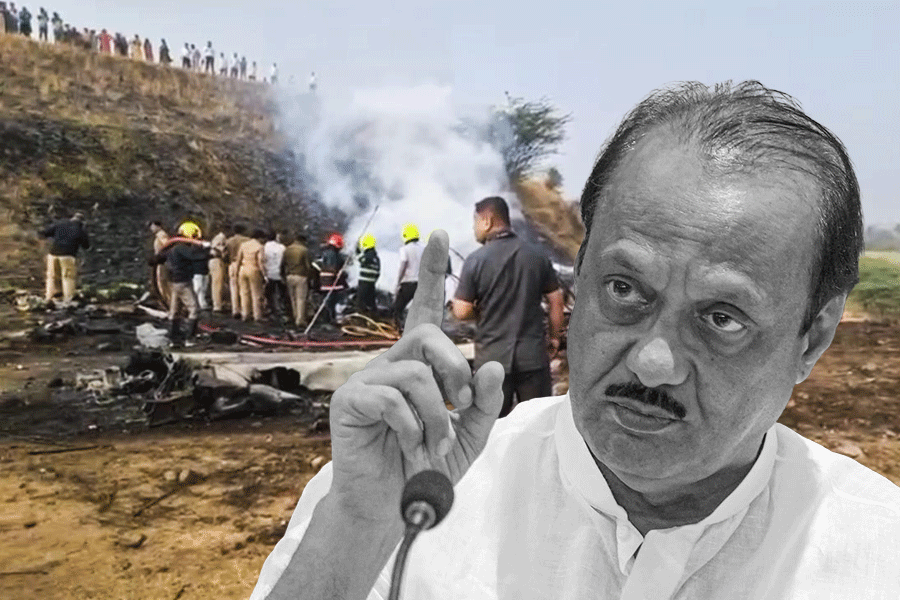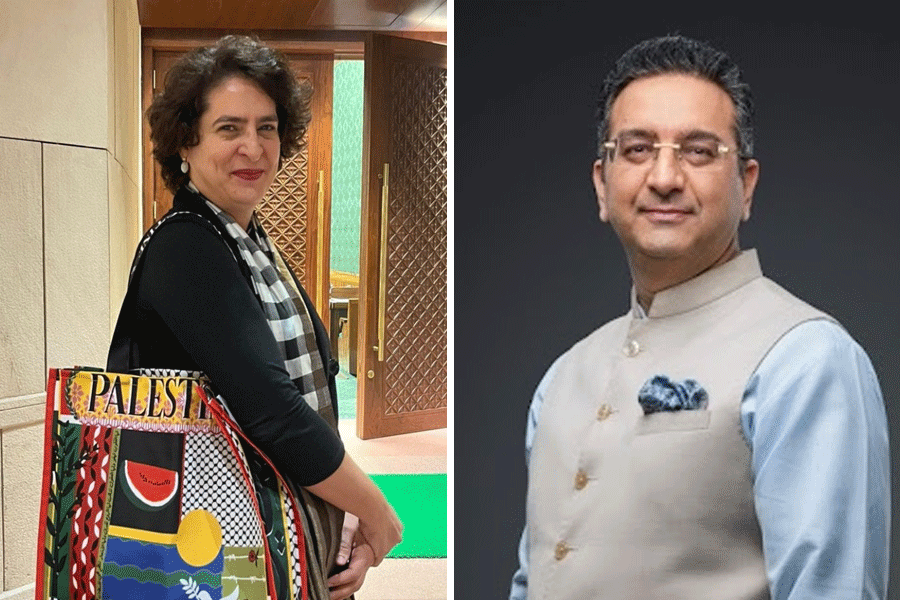 |
| Cambridge vice-chancellor Alison Richard (left) and deputy vice-chancellor Dame Sandra Dawson at Friday’s interface. Picture by Pabitra Das |
People who would, with some justification, consider themselves to be among the cleverest in Calcutta met Dr Alison Richard, the vice-chancellor of Cambridge University, at the Bengal Club on Friday. She addressed a gathering of Cambridge alumni, with some Oxford people thrown in as well, for the gathering was under the auspices of the Cambridge and Oxford Society Calcutta.
Richard might be vice-chancellor of an ancient seat of learning that will shortly celebrate its 800th anniversary, but she revealed there was no chauffeur-driven limousine to whisk her to her office. “I bicycle to work every day,” she confided. “Cambridge is the most beautiful university in the world.” But Cambridge would be a fading university if it was stuck in the past, she added hastily. “It’s work in progress.”
Today, it has 1,800 students — there are 200 from India, including 70 at undergraduate level and the rest doing postgraduate research — in 31 colleges, which offer the “genius of scale” through the intimate supervision system.
In India to strengthen Cambridge’s links with this country, Richard stressed the university offered “breadth” of education. It also created “cultural wealth”.
In India, Cambridge has so far tracked down 1,200 alumni, about 40 of whom were at the Bengal Club. “Our alumni are our best ambassadors,” she announced, flanked by Dame Sandra Dawson, the deputy vice-chancellor of Cambridge, and Malabika Sarkar, the president of the Cambridge and Oxford Society Calcutta. Sarkar (New Hall; 1971-73) said: “Her visit will motivate us as alumni to strengthen our ties with Cambridge....”
Her husband, Sudipto Sarkar (Jesus; 1967-69) — “I am alumni in my own right” — was glad that, for once, Calcutta had not been ignored. “Calcutta normally gets bypassed. The vice-chancellor of Oxford, (Lord) Chris Patten, went to Delhi and left.”
To be sure, Richard’s presence — Governor Gopalkrishna Gandhi dropped in to see her — allowed many to walk down memory lane.
Physicist Bikash Sinha (Christ’s; 1964-67), who used to affect a cravat as an undergraduate, recalled: “The romantic part of Cambridge life was very stimulating.”
Sugata Bose (St Catherine’s; 1978-84), remembered his first meeting with the (late) historian Eric Stokes. “He talked about the architectural history of Cambridge. I agree it is the most beautiful university.”
Anita Mehta (St Catherine’s, 1982-86), now known for her work in granular physics, came under the influence of Sam Edwards, head of the Cavendish Laboratory.
“He encouraged me to dream,” she said wistfully. “Sam said, ‘Go and do what you want.’ He let me fly.”
Arjun Kumar (Hommerton; 1988-92) called Cambridge “the best four years of my life”, while Husna-Tara Prakash (nee Nanda) (New Hall,1992-95, and Magdalene, 1996-97), read Natural Sciences but, even more importantly, “rode horses and rowed boats”.
For the Bagchis, Cambridge has been a family affair. Economist Amiya Bagchi was linked with three colleges: “PhD at Trinity; lecturer at Magdalene; Fellow of Jesus. In my time women did not always have dining rights in college. It is good that Cambridge now has a woman vice chancellor.”
His wife, Jasodhara Bagchi (New Hall; 1965-68), chairperson of the women’s commission of West Bengal, referred to the panel composition: “For a city which founded the first women graduates in India, it was heartening to see a panel dominated by women.”
The couple’s daughter, Barnita Bagchi (Trinity; 1997-2001), said: “Cambridge was both pastoral and a pasture. It was the luxury of having four years to think and graze.”
Sadly, economist and former Doon School boy Sanday Chand Mahtab (St John’s; 1955-58), a contemporary of Manmohan Singh, could not tell tales of the future prime minister climbing over the College walls after midnight with a girl: “He was the most brilliant student, but very modest. He had done an MA from Punjab University. He had a certain dignity. He held his own against us Doon School duffers.”
Only a Cambridge man would do self-deprecation.

